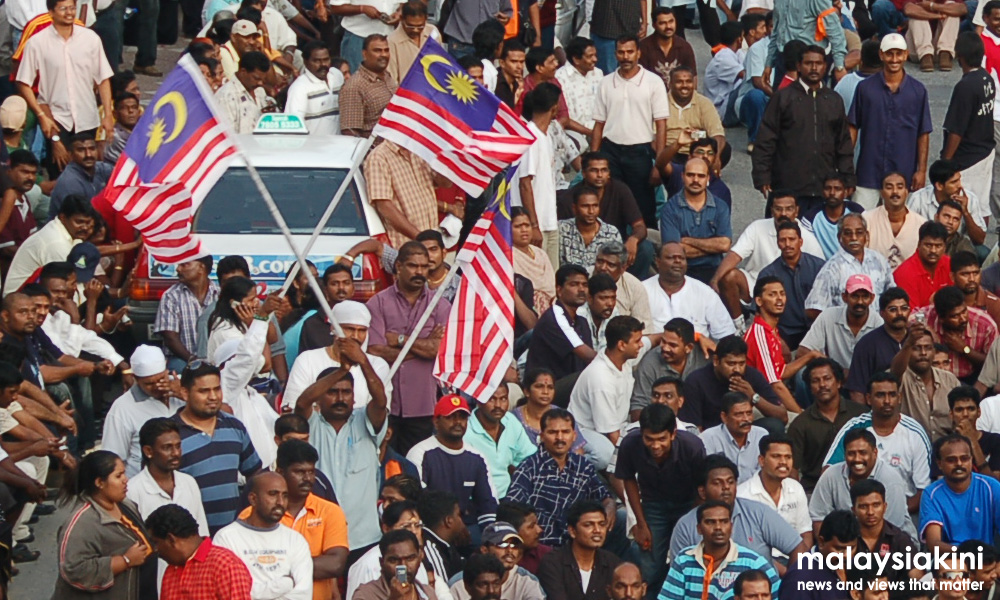QUESTION TIME | Prime Minister Najib Razak recently said that Indians should have “nambikai” (Tamil for 'faith') in BN as the only party capable of ruling the country. He added Indians who had never been marginalised by the government, should have confidence in BN’s capability based on the concept of "Naalai namathey, naalum namathey", which means "Tomorrow is ours, the future is ours".
But is that really true? Has the Indian community benefited and prospered under BN? Or is that so much nonsense being thrown into the wind in the hope that some of it will land on some Indians who will come to actually believe it? Let’s see.
Most of the Indians in the country came from a plantation background, with their forefathers being recruited under harsh and extreme conditions as indentured labour from India by the British colonialists.

According to one study: “The Indians were the most marginalised of workers. They resided in closed plantation societies in frontier zones and the plantation symbolised the boundary of their existence.”
This was in the 1900s. But did things improve for the Indians after independence in 1957? No. Even the government conspired to deny these poor and deprived Indians, without whose toil the country would not have developed, an opportunity for citizenship.
“The government also made it compulsory (through the Employment Restriction Act 1968) for non-citizens to apply for work permits for about 2,000 employment categories. These included the plantation industry, railways and municipal services, all of which were dominated by Indians. The Indians’ work permits were non-renewable and consequently 60,000 Indians left for India,” the study said.
Thus, many Indians, who played a key part in the development of the rubber and oil palm industry, and who toiled in the sun building roads, bridges, and railways, and working as general labour were forced to leave the country.
Even as far back as 1968, BN and its predecessors systematically discriminated against Indians. The low level of education and lack of economic muscle among them meant that they could not fight for themselves.
As if that was not bad enough, the government then liberalised procedures for the import of foreign labour, particularly Indonesians, into the plantation sector, which peaked in the 80s. This depressed plantation wages, impoverishing an already poor community and forcing them out of the estates to urban ghettos in the hundreds of thousands.
“During an initial phase, the government surreptitiously allowed local contractors/intermediaries to recruit Indonesian workers from the Indonesian squatter settlements in Kuala Lumpur and the Klang Valley.
“Subsequently both regular and irregular migrants formed the nucleus of less-skilled foreign workers in the oil palm plantations during this period,” the study said.
Lacking the means to make a living, and with no help from an impotent MIC and the BN government, many Indians turned to a life of crime. Some of them were brutally killed in...

